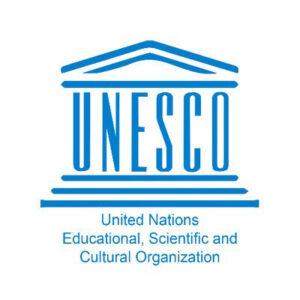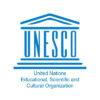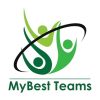Non-Staff Consultant at UNESCO
Job Overview

Non-Staff Consultant at UNESCO
Non-Staff Consultant at UNESCO
September, 2023
NON-STAFF CONSULTANT
OVERVIEW
Parent Sector : Education Sector (ED)
Duty Station: Dar-es-Salaam
Classification of duty station: [[filter12]]
Standard Duration of Assignement : [[filter13]]
Job Family: Education
Type of contract : Non Staff
Duration of contract : From 1 to 6 months
Recruitment open to : External candidates
Application Deadline (Midnight Paris Time) : 04/10/2023
UNESCO Core Values:
Commitment to the Organization, Integrity, Respect for Diversity, Professionalism
OVERVIEW OF THE FUNCTIONS OF THE POST
Introduction
The GPE System Capacity Grant is a funding mechanism provided by the Global Partnership for Education (GPE) to support developing countries in strengthening their education systems leading to better learning outcomes for children and young people. Since 2005, the GPE has provided over $335 Mil in grants to support education in Tanzania to enhance the effectiveness, efficiency, and equity of education systems. The current GPE System Capacity Grant is supporting Tanzania’s Local Education Group (LEG) Self-Assessment to allow the LEG to reflect on their work and identify areas for improvement. The LEG, known as the Education Sector Development Committee (ESDC) in Tanzania, is a group of education stakeholders at the local level who work together to improve education outcomes in their community. To facilitate, coordinate, and oversee this assessment process, UNESCO seeks a highly qualified Lead Consultant responsible for ensuring the successful execution of the GPE Local LEG Self-Assessment in Tanzania Mainland. The Lead Consultant will be entrusted with orchestrating a multifaceted evaluation process that delves into the core of Tanzania Mainland LEG, ESDC. This assessment will harness the full potential of educational resources, foster innovation, and create a more inclusive and equitable education system in Tanzania’s Mainland.
Long Description
The main objective of the Consultancy is to lead the process of the GPE Local Education Group/ Education Sector Development Committee Self-Assessment to enable the LEG to reflect on their performance, identify areas for improvement, and develop a plan for strengthening their work. Specifically, the assessment seeks to:
1) Assess the LEG’s performance in achieving their goals and objectives related to education in their community. 2) Identify strengths and weaknesses in the LEG’s approach to education development and delivery, including areas where additional support may be needed. 3) To develop a plan for strengthening the work of the LEG based on the results of the self-assessment process. 3) Ensure that the LEG’s efforts are aligned with the priorities and goals of the Global Partnership for Education (GPE) and the Tanzanian government 4) Empower local education stakeholders to take ownership of education initiatives in their community and to be more responsive to the needs of children and families 5) improve the efficiency and effectiveness of education initiatives locally by ensuring that resources are used more efficiently, and that education outcomes are more closely aligned with local needs and priorities.
Long Description
Planned Activities 1)Planning and Preparation: The Lead Consultant will lead his/her team to work with the LEG/ESDC and other stakeholders to plan and prepare for the self-assessment process. 2) Data Collection: will include surveys, interviews, focus group discussions, and document reviews. 3) Data Analysis 4) Stakeholder Engagement: The Lead Consultant will lead his/her team to engage with stakeholders throughout the self-assessment process to ensure that their perspectives are considered and that the process is inclusive.4) Results Dissemination to the LEG/ESDC and other stakeholders. 5) Action Planning: The consultant team will work with the LEG/ESDC to develop a plan for strengthening their work based on the results of the self-assessment process. 6) Reporting: Prepare report summarizing the findings of the self-assessment process and the plan for strengthening the work of the LEG/ESDC. of education initiatives at the local level.
Outputs
Methodology 1) Desk review 2)Planning: Participate in a planning meeting and the LEG, and other stakeholders 3) Data collection 4)Data analysis 5) Results validation through a meeting 6)Action planning – develop a plan for strengthening the work of the LEG based on the results of the self-assessment process. 7) Reporting
Long Description
Expected Outputs – 1) A Comprehensive Report on the State of the Local Education Group (LEG) 2) Action plan for LEG Improvement 3) Capacity Development Plan for LEG Members 4) Communication and Dissemination plan 5) Final presentation to stakeholders
COMPETENCIES (Core / Managerial)
Accountability (C)
Communication (C)
Innovation (C)
Knowledge sharing and continuous improvement (C)
Planning and organizing (C)
Results focus (C)
Teamwork (C)
Professionalism (C)
For detailed information, please consult the UNESCO Competency Framework.
REQUIRED QUALIFICATIONS
1)A PhD in education, social sciences, or a related field 2) Proven experience in leading and coordinating complex assessments, evaluations, or research projects related to education or development programs 3) Strong analytical skills and experience in data collection, analysis, and reporting 4) Excellent communication and facilitation skills, with the ability to engage effectively with diverse stakeholders.5) Demonstrated knowledge of the education sector in Tanzania or similar contexts. 6) Familiarity with the Global Partnership for Education (GPE) and its objectives is an advantage. 7) Fluency in English is required, and proficiency in Swahili is highly desirable.
APPLICATION PROCEDURE
Interested candidates should click on “Apply Now”, and download and complete the Employment History form (Word document). Before uploading the document, at the end of the Word document, please insert extra pages with the following required information: An up-to-date CV stating details of educational qualifications, work experience, including prior experience of similar work. A technical proposal detailing the approach/methodology to undertake the assignment and the proposed cost.
SELECTION AND RECRUITMENT PROCESS
Please note that all candidates must complete an on-line application and provide complete and accurate information. To apply, please visit the UNESCO careers website. No modifications can be made to the application submitted.
The evaluation of candidates is based on the criteria in the vacancy notice, and may include tests and/or assessments, as well as a competency-based interview.
UNESCO uses communication technologies such as video or teleconference, e-mail correspondence, etc. for the assessment and evaluation of candidates.
Please note that only selected candidates will be further contacted and candidates in the final selection step will be subject to reference checks based on the information provided.
Footer
UNESCO recalls that paramount consideration in the appointment of staff members shall be the necessity of securing the highest standards of efficiency, technical competence and integrity. UNESCO applies a zero-tolerance policy against all forms of harassment. UNESCO is committed to achieving and sustaining equitable and diverse geographical distribution, as well as gender parity among its staff members in all categories and at all grades. Furthermore, UNESCO is committed to achieving workforce diversity in terms of gender, nationality and culture. Candidates from non- and under-represented Member States (last update here) are particularly welcome and strongly encouraged to apply. Individuals from minority groups and indigenous groups and persons with disabilities are equally encouraged to apply. All applications will be treated with the highest level of confidentiality. Worldwide mobility is required for staff members appointed to international posts.
UNESCO does not charge a fee at any stage of the recruitment process.




